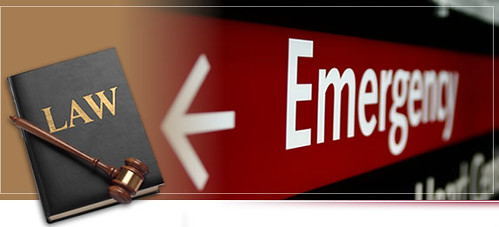How a Pre-existing Condition Affects Your Personal Injury Claim
Pre-existing conditions can greatly alter the value of your personal injury claim. Depending on how the pre-existing condition relates to your new injuries, and depending on what the doctors say about it, the value could actually break either way. The pre-existing condition could make your claim worth more, or less. It really depends. If you have a pre-existing condition, and you are injured by the negligence of another, you certainly need to consult with a lawyer before pursuing a claim.
How It Might Help:
A pre-existing condition could actually make a claim worth more because everyone realizes that aggravating an existing injury can be more painful and more difficult to treat than simply being injured for the first time. Under the law, there is a theory called the “egg-shell plaintiff” theory. This theory says that a defendant must take a plaintiff as he finds him. In other words, if you run into someone with your car and they happened to have very brittle bones, you cannot reduce your liability by arguing that a person with strong bones would not have been as seriously injured as your victim was. That argument would not make sense because it would leave the victim being undercompensated for their injuries. It is not the victim’s fault that they had brittle bones, and it is not the victim’s fault that you ran into them with your car. This type of situation actually occurs more than you might think. Someone with chronic back problems will be hurt far worse in a whiplash accident than a young, healthy individual with a strong back would be. If a the treating physician will go on record stating that although a pre-existing condition existed, all of the complications and new treatment are related to the most recent injury, the victim will be able to recover all of their medical bills even though they will likely be higher than the medical bills of an individual with no pre-existing condition.
 photo by personatt8
photo by personatt8How It Might Hurt:
A pre-existing condition could make your claim worth less because it raises a lot of suspicion about the treatment. For example, if you are regularly seeing a chiropractor because you experience a lot of neck and back pain due to the physical requirements of your job; and you get into a car crash and then continue to go to the chiropractor because of worsened pain in your neck and back, the insurance adjustor will question the legitimacy of your injuries. They will argue that you took the car accident as an opportunity to aggressively over-treat injuries that you already had. Basically they are saying that they do not believe that you were actually hurt, or in the alternative, if you were hurt, only a small part of your treatment after the accident was related to the accident. Having the insurance company not accept all of your treatment as reasonable is a very bad thing for the value of your claim. When special damages are lowered, general damages are lowered too. That is why pre-existing conditions can be extremely problematic.
The End Game:
If you have a pre-existing condition, the best thing you can do is to be referred to new medical providers to deal with your new issues. Then, have a provider write up a letter stating which treatment may be related to the pre-existing injury and which is related to the recent accident. It is important to consult with a car crash lawyer early in this process so that you can ensure being treated fairly during your settlement negotiations.
This article is offered only for general information and educational purposes. It is not offered as and does not constitute legal advice or legal opinion. You should not act or rely on any information contained in this article without first seeking the advice of an attorney.


